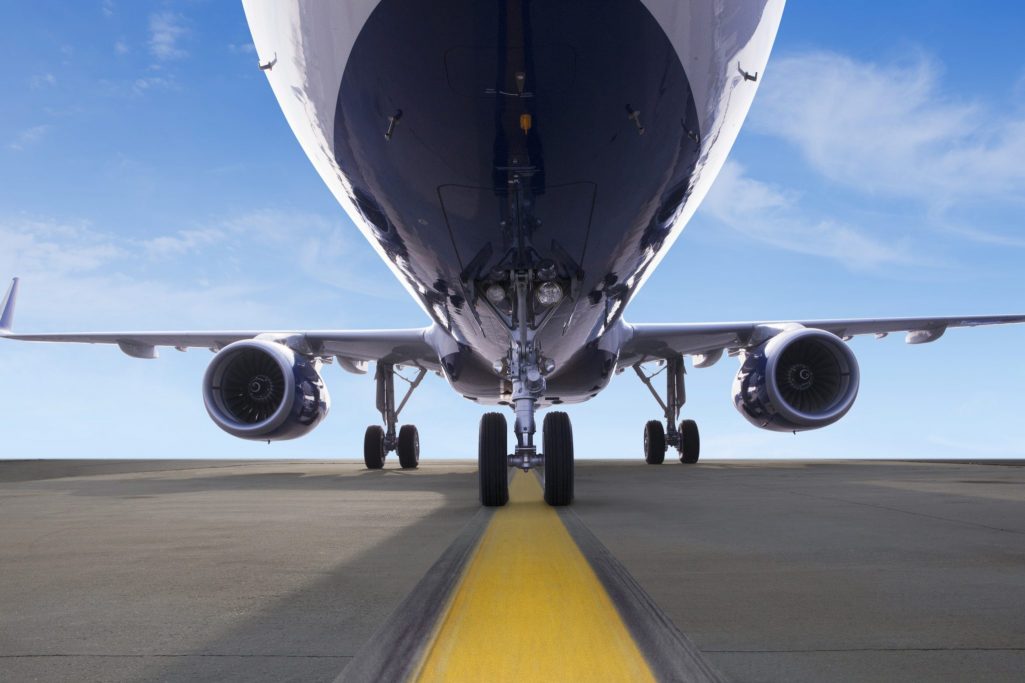JetBlue Blames Airbus Jet Delays for Slowing Its Growth

Skift Take
JetBlue Airways will curb its growth for the next 18 months and slow its interior retrofit program on existing jets because Airbus is significantly behind on delivering a new fuel efficient airplane, executives said Tuesday on their second quarter earnings call.
Airbus and the engine manufacturer, Pratt & Whitney, have struggled with manufacturing and design problems, leading to production delays on the Airbus A320neo family of airplanes. Neo stands for "new engine option."
JetBlue is the latest airline to complain publicly. After International Airlines Group unexpectedly signed a letter of intent in June for 200 Boeing 737 Max aircraft, Willie Walsh, its CEO, told reporters it "should be an indication not just to Airbus but to everybody that we’re unhappy with their performance.”
JetBlue, which hasn't placed a non-Airbus order since 2003, didn't go so far in its criticism of the manufacturer, but Chief Financial Officer Steve Priest said the airline is not pleased. JetBlue has received just one new airplane, he said, and by the end of this year, it will have no more than six, or seven fewer than expected. Next year, JetBlue planned to take 15, but Airbus has said it can deliver no more than 14.
Executives warned the delivery schedules are fluid, and subject to change.
"We're very disappointed with the continued delays to our A321neo program, as a result of the Airbus production issues, including a further delay that we've received in the last 1.5 weeks," Priest said.
Priest is irritated, but probably not surprised. Airbus and Pratt & Whitney have had reliability issues for several years, and in 2017, with trouble mounting, JetBlue pushed off its first Neo deliveries. JetBlue had expected to take some Neos last year, but decided instead to take only older-technology jets, with the first delivery Neo coming this year.
Slowing Growth
With fewer airplanes, JetBlue can't fly as many flights. For this year, the company said, it will grow capacity by 5.5 to 6.5 percent, a little less than the 5 to 7 percent the company had planned.
Next year the airline also plans to grow capacity by 2 percentage points less than expected, executives said. They had planned to grow next year in the "mid-to-high single digits," CEO Robin Hayes said.
JetBlue executives acknowledged slower growth has some advantages. In fact, the airline had already planned less-than-usual growth for later this year so it could "protect" its margins. With fewer seats to sell, JetBlue is theoretically able to charge more for each one because of the law of supply and demand.
Retrofit Program
As is typical when an airline is short aircraft, JetBlue is slowing plans to retrofit interiors of its 130 Airbus A320, some of which are nearly 20 years old and showing their age. JetBlue doesn't want to pull them from service during busy travel periods.
The airline has made a big deal of marketing the new interiors, which have new seats with movable headrests, high-definition television screens, and in-seat power. JetBlue has completed 28 airplanes. Even though they have denser seating — the airline added 12 seats on each plane — net promoter scores from travelers are about seven points higher on completed planes than old ones, President Joanna Geraghty said.
JetBlue still expects to have all the aircraft done by the end of next year, but in the short term, the program will move slower than planned, she said.
"We've made adjustments to our restyling campaign so that we could save some [capacity] associated with restyling to make up for the loss for the Neo delays, Geraghty said.
JetBlue is considerably behind its original schedule for retrofits. Aviation analyst Seth Miller noted that in late 2016, JetBlue planned to be more than 80 percent done with retrofits by the end of this year. Over time, the schedule slipped.
Europe Still On
JetBlue plans to fly from New York and Boston to London in 2021 using a longer-range model of the Airbus A321neo, and that plan is on target, Priest said.
"We don't anticipate any impact to our 2021 European plans with the Neo delays," he said.
It is possible JetBlue will tweak other plans. The Airbus A321neo can fly 500 more nautical miles than JetBlue's existing A321s, and executives have said they plan to take advantage of the added range with new flights in the Americas. In December the airline plans to fly its longest-ever route, from New York to Guayaquil, Ecuador, using the new jet.
That route is on, and JetBlue should have the aircraft for it. But it is possible the airline would like to announce more South America routes, pending aircraft availability.
Financial Results
In the second quarter, JetBlue reported net income of $179 million on total revenues of $2.1 billion. Revenue per available seat mile, an industry metric measuring how much money an airline makes for each seat flown one mile, increased 3.1 percent.
JetBlue is still predominantly a leisure airline, and it gets a boost whenever Easter and Passover fall firmly in the second quarter. Last year the Easter and Passover holiday weekends both began in March and ended in April, so some of the associated revenue fell in the first quarter. This year both weekends were fully in the second quarter, which helped revenue comparisons.
JetBlue has promised investors it will achieve between $2.50 and $3 in earnings per share by 2020. Despite the Neo problems, executives said they still expect they will reach their target.
Still, not all analysts have been persuaded. Rajeev Lalwani, an analyst with Morgan Stanley, asked Hayes whether the airline has considered "evaluating strategic alternatives as a "Plan B," in case JetBlue falls short. Another analyst, Hunter Keay of Wolfe Research, has asked if JetBlue could be a takeover target if it misses its goals.
Hayes declined to answer the question directly, saying, "We're very focused on the $2.50 to $3," before adding, "we're not distracted by anything else."




